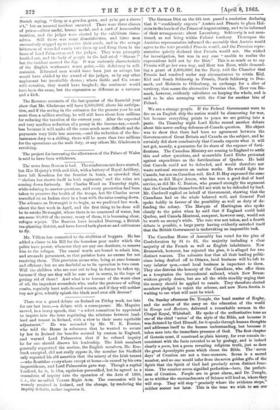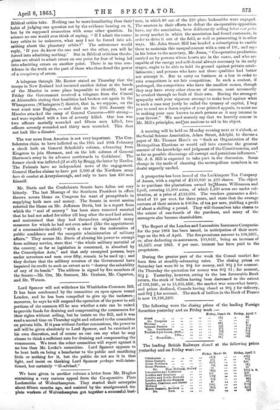On Sunday afternoon Dr. Temple, the head master of Rugby,
and the author of the essay on the education of the world in Essays and Reviews, delivered a remarkable sermon in the Chapel Royal, Whitehall. He spoke of the authoritative tone as one of the chief ' notes' of the style of the Bible, not because it was dictated by God Himself, for it speaks through human thoughts and addresses itself to the human understanding, but because it takes man into the immediate presence of God. The first chapter of Genesis must, if construed as plain history, for ever remain in- consistent with the facts revealed to us by geology, and is indeed clearly a poem, but a poem revealing religious truth, just as does the great Apocalyptic poem which closes the Bible. The seven days' of Creation are not a time-measure. Seven is a sacred number, and no one would infer from the seven golden gifts of the Spirit that the Spirit of God had precisely seven distinct func- tions. The number seven signified perfection—here, the perfeet- ness of Creation. People are in great alarm, said Dr. Temple, as to whither the encroachments of Science will lead us, where they will atop. They will stop " precisely where the evidence stops," neither sooner nor later. This is the tone we wish to see our
Biblical critics take. Nothing can be more humiliating than their habit of judging one question not by the evidence bearing on it but by its supposed connection with some other question. In science no one would ever think of saying, " If I admit the come- tary orbits to be unknown, what may I not be forced into ad- mitting about the planetary orbits ?" The astronomer would reply, If you do know the one and not the other, you will be forced into admitting nothing.' But in Biblical criticism theolo- gians are afraid to admit errors on one point for fear of being led into admitting errors on another point. There is no true con- fidence in the truth on the part of those who thus dread the power of a conspiracy of errors.































 Previous page
Previous page